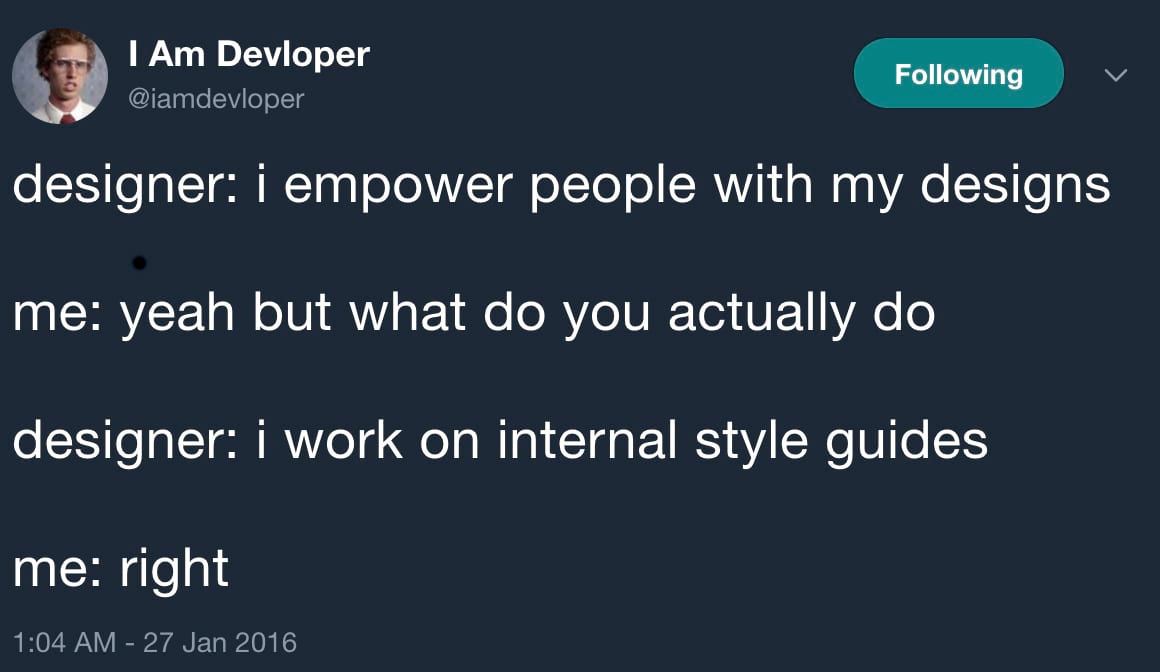Brain Change - Working on the Web in Two Thousand Sixteen
January 27, 2016Designing and developing for the web has changed a lot in the last 5 years. Most noticeably, we have shifted from building "web pages" to building "web applications".
Two factors drove this change:
- In case you missed it: It’s All. About. Mobile. (include links later) ( And that means Apps )
- Better browser standards and features
That might be over simplifying a bit, but the results are clear. If you look around, the main work to do on the internet today relates to creating services and applications across many different channels.
There’s a big difference between the “web pages” of old and a “web app” of today .That means new challenges and new ways of thinking.
For designers, it could mean something like this tweet:

Jokes aside, what it really means is that web designers are exploring new areas. User Experience design, Atomic Design, and functional CSS are good examples (and yes internal style guides are relevant). Design today often means designing entire systems due to the rise of the app.
On the dev side, the shifts have been even more monumental, especially for front-end developers.
Better browser standards and new features are radically redefining the what it means to work with the front end. More and more responsibilities are being delegated to the client (browser-side).
With increasingly complex app logic and data handling steadily shifting to the client-side, new tools have risen to handle the challenge.
Tools like webpack, React, GraphQL, Relay, and Babel help solve problems front end developers historically didn’t encounter. We’re working like programmers and our tools reflect that.
[Short aside]: These are awesome tools, but expect them to keep evolving. Some people are “fatigued” by the pace of change, but I find evaluating new tech an essential and engaging part of the job!
It’s not just tools that are changing, either. I’ve noticed it’s changes in the way I think. I’m not alone.
I’ve seen many people in the burgeoning JavaScript community looking at older programming languages to act as guidance and inspiration. There’s a ton of discussion about functional programing, pure functions, and the language itself. I’m looking deeply into:
- Elm Lang — a new functional language
- Guide to Functional Programming — JavaScript using pure functions
- Haskell ( Learn You A Haskell ) — Popular learning tool
This is a pretty short list, but it just goes to show that the job is a lot more than HTML and CSS.
Fun times ahead!
TL;DR:
- We have shifted from building web pages to building web applications.
- Our challenges change, and our solutions change as a result.
- It’s an exciting time to do work on the web.
